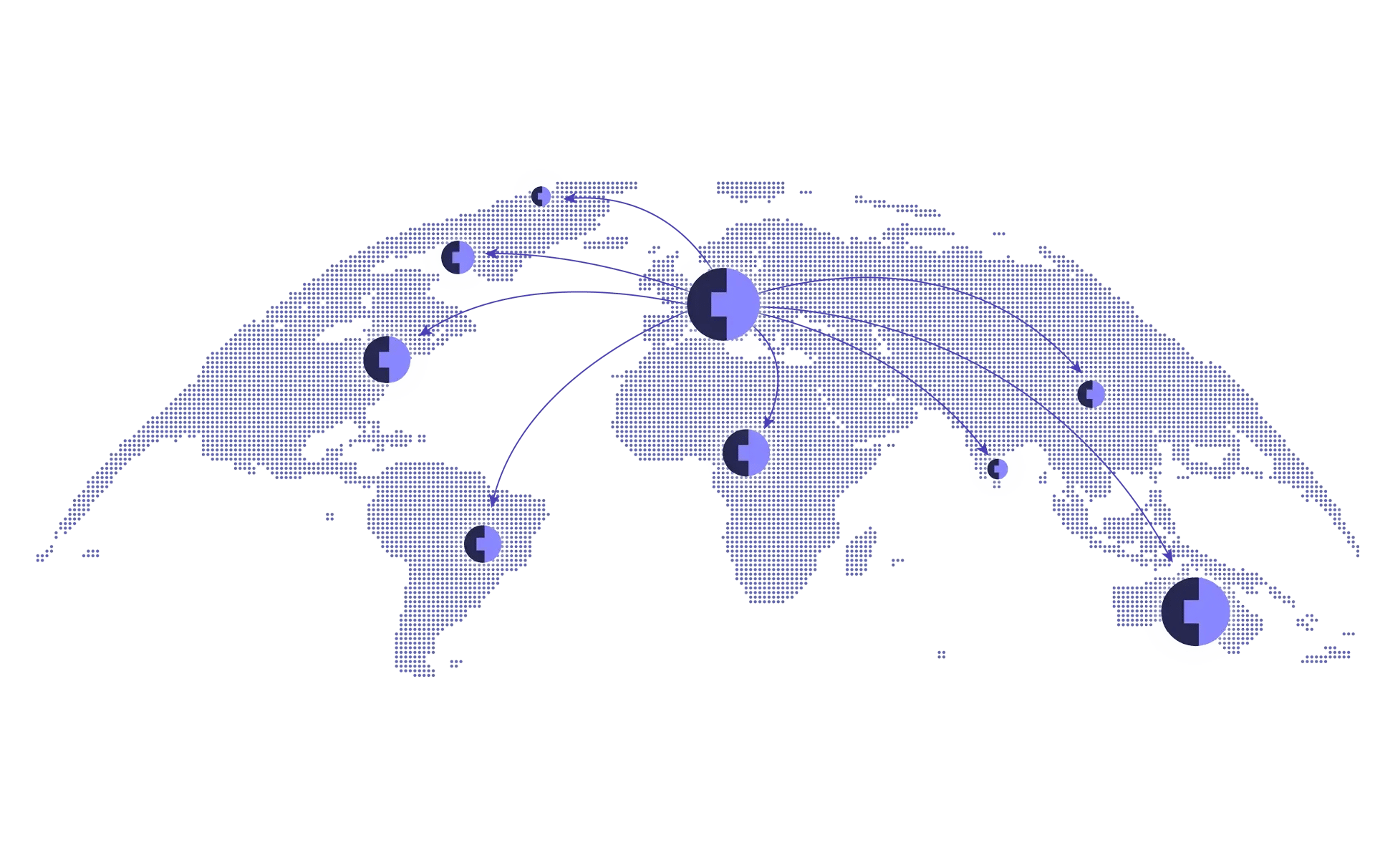International Expansion Zone
The International Expansion Zone equips you with everything you need to enter new markets—from strategic advice to actionable playbooks.

What's on this page
Expansion 101
No items match your selection
Region - UK
Region - Germany
Region - France
FAQs
An example of business expansion is Amazon, which started as an online bookstore but grew into a global e-commerce, cloud computing, and AI-driven company. Another well-known example is Starbucks, which expanded internationally by franchising and opening company-owned stores worldwide.
In the B2B SaaS space, Salesforce is a prime example. Initially a CRM platform, it expanded its offerings through acquisitions (e.g., Slack, Tableau) and developed a full ecosystem of cloud-based enterprise solutions. Similarly, HubSpot began as an inbound marketing tool and evolved into an all-in-one growth platform, adding CRM, sales, and customer service tools to scale globally.
The primary aim of business expansion is to increase revenue, market share, and brand influence. Businesses expand to reach new customers, improve economies of scale, diversify revenue streams, and gain a competitive edge.
Expanding a business is crucial for long-term sustainability and profitability. It allows companies to tap into new markets, reduce dependency on a single revenue stream, leverage operational efficiencies, and attract investors or funding.
Business growth refers to an increase in revenue, customer base, or market presence, while business expansion involves scaling operations, entering new markets, launching new products, or acquiring competitors. Expansion is a strategic move that supports long-term growth.
- Market Penetration – Selling more of existing products to the same market.
- Market Development – Expanding into new geographic areas or customer segments.
- Product Development – Introducing new products or services.
- Diversification – Expanding into new industries or business areas.
- Acquisitions & Mergers – Buying or merging with other businesses to expand rapidly.
Business extension refers to adding complementary products or services within the same market, whereas expansion involves scaling operations, entering new markets, or increasing production capacity to grow the business.


![How to Create A Sales Territory Plan [Guide + Examples]](https://www.cognism.com/hubfs/LinkedIn%20banner%20%281200%20x%20627%20px%29.jpg)























